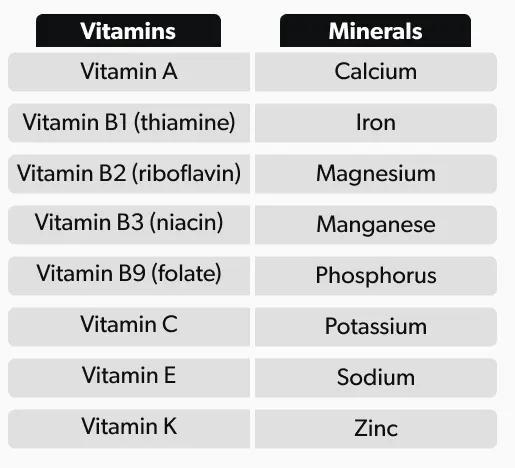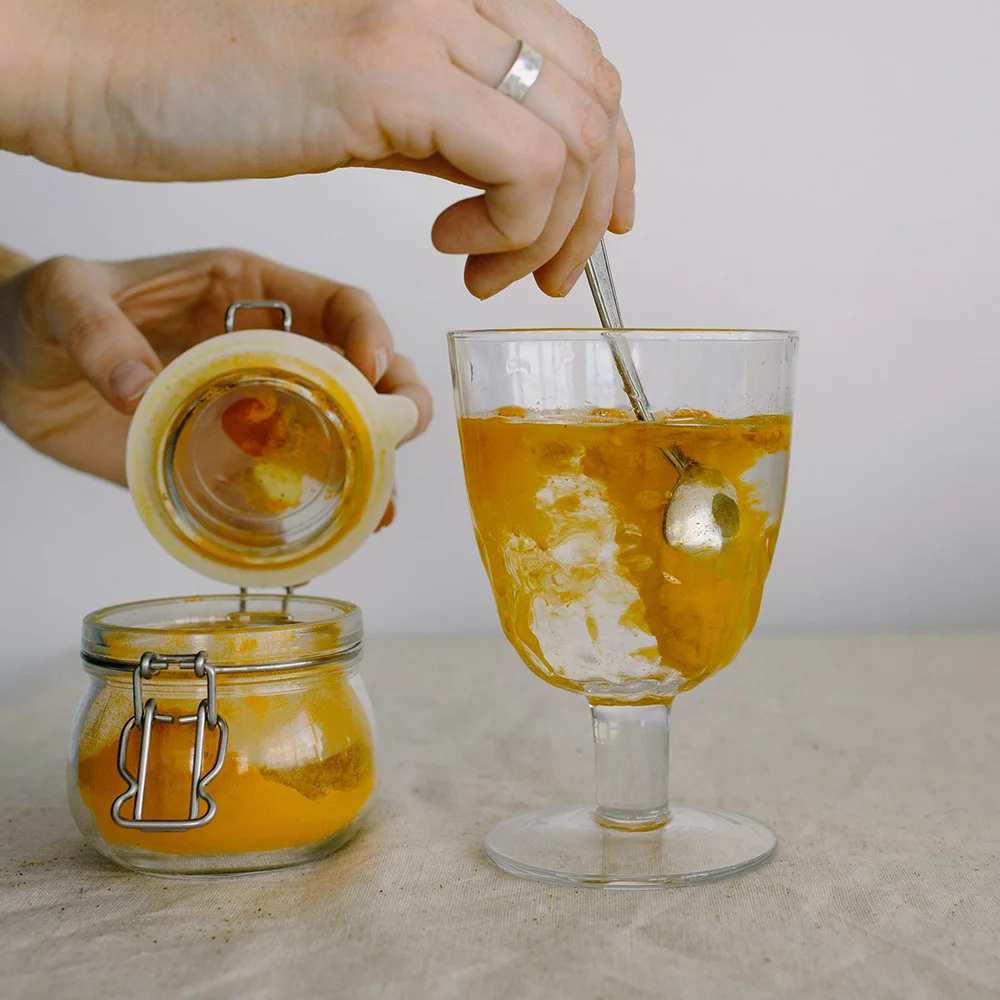Spirulina's effect on heart health

Reviewed by Mike Bohl, MD, MPH, ALM,
Written by Chimene Richa, MD
last updated: Nov 10, 2019
4 min read
Here's what we'll cover
Spirulina is a type of cyanobacteria (blue-green algae), single-celled microbes that can get energy from sunlight, like plants, and are found worldwide in fresh and saltwater. Spirulina has been used as a food source for centuries, even as far back as ancient Aztec civilizations (Karkos, 2011).
Considered a “superfood” by some, spirulina is a good source of protein and vitamins; it is approximately 55–70% protein, making it an alternative protein source for vegans and vegetarians. Spirulina contains both essential and non-essential amino acids; essential amino acids are compounds that we need, but are unable to make ourselves and have to come from our diet. The essential amino acids found in spirulina include leucine, tryptophan, methionine, phenylalanine, lysine, thionine, isoleucine, and valine. In addition to being a great source of protein, spirulina also has other vitamins and minerals, including (Wikipedia, n.d.):

Spirulina’s role in heart health
The main bioactive compound in spirulina is phycocyanin. Not only does this compound give spirulina its distinctive blue-green color, but it also has the potential to promote heart health via anti-inflammatory and antioxidant effects. Spirulina may be beneficial in the treatment of high blood pressure, high cholesterol, and heart disease.
Blood pressure
Research suggests that spirulina promotes vasodilation (opening of the blood vessels) by enhancing nitrous oxide release, leading to a decrease in blood pressure (Torres, 2007). Studies have shown a decrease in blood pressure in people given large (4.5 g) doses of spirulina over six weeks (Torres, 2007). However, more research is needed to better understand the role spirulina may play in the treatment of blood pressure.
Elevated cholesterol
Non-human studies found that spirulina, due to its phycocyanin, can decrease the amount of cholesterol that the intestines absorb (Torres, 2007). Another proposed mechanism is that spirulina’s antioxidant actions also work to lower cholesterol and triglycerides in the blood. Studies show that people treated with spirulina see a drop not only in their total cholesterol levels but also in their triglyceride and LDL (“bad” cholesterol) levels (Huang, 2018; Mazokopakis, 2014). While not the primary treatment of high cholesterol, spirulina may be beneficial as an added supplement.
Preventing heart disease
Cardiovascular (heart) disease is a leading cause of death, and risk factors for this include elevated blood pressure and cholesterol levels. In addition, the development of atherosclerosis (fat-deposit) plaques on the inside of your arteries puts you at higher risk for heart attacks and strokes. By reducing oxidative damage through its antioxidant actions, increasing blood vessel relaxation via nitrous oxide release, and decreases cholesterol, spirulina can help decrease your risk of heart disease.
With all of these potential effects on heart health, more research is needed to understand spirulina’s role in these conditions better.
Additional potential benefits of spirulina
Spirulina may be beneficial not only for the heart but also for other systems in the body:
Antioxidant activity
The phycocyanin in spirulina works to fight free radicals that can cause oxidative damage in the body, leading to diseases like cancer, heart disease, inflammatory disorders, etc.
Anti-inflammatory activity
Spirulina appears to have anti-inflammatory effects by decreasing some of the pro-inflammatory signals in your body (Shih, 2009).
Immune booster
Studies have shown that spirulina can increase the activity of natural killer (NK) cells; these are the immune cells in your body responsible for killing tumor cells and cells infected by viruses (Nielson, 2010).
May increase endurance
Research is limited, but it does suggest that spirulina may increase exercise endurance (Kalafati, 2010). Since exercise produces oxidants that lead to fatigue, the antioxidant action of spirulina may be beneficial in improving endurance.
May help control blood sugar
Studies have shown that some people taking spirulina have a drop in their fasting blood glucose levels as well as a small reduction in their hemoglobin A1C levels, a blood marker used to measure diabetes severity (Huang, 2018; Parikh, 2001).
May support mental health
Spirulina is a good source of tryptophan, an essential amino acid. Tryptophan plays an important role in your mental health because it is one of the building blocks of the brain chemical serotonin (Sasie, 2018). Low levels of tryptophan and serotonin can lead to conditions like depression, anxiety, etc. Taking spirulina can boost your tryptophan levels and, potentially, your mental health. However, more research in this area is needed.
May improve allergy symptoms
In addition to the other anti-inflammatory effects, spirulina also decreases histamine release, which can lead to a decrease in allergy symptoms. One study showed that people with allergic rhinitis who took spirulina had a significant improvement in the allergy symptoms of runny nose, sneezing, nasal congestion, and itching compared to those who took the placebo (Cingi, 2008).
How to take spirulina
Spirulina is available in either powder or capsule form. As a powder, you can add it to drinks, sprinkle it on your food, or come up with your own way of incorporating it into your diet. As for how much to take, there is no standard dosing regimen; doses of 1–8 grams have been used in the various studies depending on the condition they are addressing. For high blood pressure, studies have used 2–4.5 grams of spirulina (MedlinePlus, 2019).
Risks of using spirulina
Spirulina is generally considered safe; side effects are usually mild and include nausea, vomiting, diarrhea, abdominal discomfort, headache, dizziness, and fatigue. However, there are potentially serious risks with using spirulina, including (MedlinePlus, 2019):
Toxic contaminants: Spirulina is available both in farmed and natural forms. Make sure that you are getting it from a reputable source and controlled environment. If it is grown in contaminated water, it can have microcystins, toxic metals, and harmful bacteria; microcystins can damage your liver if too much is ingested.
Unknown effects in children and pregnant or lactating women: We do not know if spirulina is safe for these groups, so it is best to avoid taking spirulina in these situations.
Worsening of auto-immune disease: Since spirulina may boost your immune system, you should avoid taking it if you have an auto-immune condition, like multiple sclerosis, lupus, rheumatoid arthritis, etc. Activating your immune system may increase the symptoms of these conditions.
Blood clotting problems: Although no human studies have shown a decrease in clotting, spirulina does seem to have an anticoagulant (anti-clotting) effect in non-human studies. Therefore, if you have a blood clotting disorder or are taking a blood thinner, you may have increased bruising and decreased clotting ability with spirulina.
Phenylketonuria: Spirulina contains the amino acid phenylalanine. This is not a problem for most people, but it can be harmful to people with phenylketonuria (PKU). Those with PKU cannot metabolize phenylalanine, and it builds up in their body and causes health problems. If you have PKU, you should not take spirulina.
Allergic reactions: It is possible to be allergic to spirulina, so consider allergy testing prior to starting the supplements.
Spirulina is a relatively safe natural supplement that is a good source of proteins, vitamins, and minerals. More research is needed to say definitively how beneficial it is for your heart and overall health. In the meantime, be sure to talk with your healthcare provider before starting any new supplements.
DISCLAIMER
If you have any medical questions or concerns, please talk to your healthcare provider. The articles on Health Guide are underpinned by peer-reviewed research and information drawn from medical societies and governmental agencies. However, they are not a substitute for professional medical advice, diagnosis, or treatment.
Cingi, C., Conk-Dalay, M., Cakli, H., & Bal, C. (2008). The effects of spirulina on allergic rhinitis. European Archives of Oto-Rhino-Laryngology , 265 (10), 1219–1223. doi: 10.1007/s00405-008-0642-8. Retrieved from https://www.ncbi.nlm.nih.gov/pubmed/18343939
Huang, H., Liao, D., Pu, R., & Cui, Y. (2018). Quantifying the effects of spirulina supplementation on plasma lipid and glucose concentrations, body weight, and blood pressure. Diabetes, Metabolic Syndrome and Obesity : Targets and Therapy , 11 , 729–742. doi:10.2147/DMSO.S185672. Retrieved from https://www.ncbi.nlm.nih.gov/pmc/articles/PMC6241722/
Kalafati, M., Jamurtas, A. Z., Nikolaidis, M. G., Paschalis, V., Theodorou, A. A., Sakellariou, G. K., et al. (2010). Ergogenic and Antioxidant Effects of Spirulina Supplementation in Humans. Medicine & Science in Sports & Exercise , 42 (1), 142–151. doi: 10.1249/mss.0b013e3181ac7a45. Retrieved from https://www.ncbi.nlm.nih.gov/pubmed/20010119
Karkos, P. D., Leong, S. C., Karkos, C. D., Sivaji, N., & Assimakopoulos, D. A. (2011). Spirulina in Clinical Practice: Evidence-Based Human Applications. Evidence-Based Complementary and Alternative Medicine , 2011 , 1–4. doi: 10.1093/ecam/nen058. Retrieved from https://www.ncbi.nlm.nih.gov/pubmed/18955364
Mazokopakis, E. E., Starakis, I. K., Papadomanolaki, M. G., Mavroeidi, N. G., & Ganotakis, E. S. (2014). The hypolipidaemic effects of Spirulina (Arthrospira platensis) supplementation in a Cretan population: a prospective study. Journal of the Science of Food and Agriculture , 94 (3), 432–437. doi: 10.1002/jsfa.6261. Retrieved from https://www.ncbi.nlm.nih.gov/pubmed/23754631
MedlinePlus. (2019, August 30). Supplements: Blue-Green Algae. Retrieved Nov. 10, 2019 from https://medlineplus.gov/druginfo/natural/923.html
Nielsen, C., Balachandran, P., Christensen, O., Pugh, N., Tamta, H., Sufka, K., et al. (2010). Enhancement of Natural Killer Cell Activity in Healthy Subjects by Immulina®, aSpirulinaExtract Enriched for Braun-Type Lipoproteins. Planta Medica , 76 (16), 1802–1808. doi: 10.1055/s-0030-1250043. Retrieved from https://neuroscience.olemiss.edu/files/2012/04/enhancement-of-killer-cell-activity1.pdf
Sasie, Si. (2018). Spirulina as a main source of tryptophan for mental illness: Improving level of serotonin through tryptophan supplementation. Global Journal of Medicine and Public Health, 7(2), 1-5. Retrieved on Nov. 10, 2019 from https://www.researchgate.net/publication/326293829_Spirulina_as_a_main_source_of_tryptophan_for_mental_illness_Improving_level_of_serotonin_through_tryptophan_supplementation
Shih, C. M., Cheng, S. N., Wong, C. S., Kuo, Y. L., & Chou, T. C. (2009). Antiinflammatory and Antihyperalgesic Activity of C-Phycocyanin. Anesthesia & Analgesia , 108 (4), 1303–1310. doi: 10.1213/ane.0b013e318193e919. Retrieved from https://www.ncbi.nlm.nih.gov/pubmed/19299804
Torres-Duran, P. V., Ferreira-Hermosillo, A., & Juarez-Oropeza, M. A. (2007). Antihyperlipemic and antihypertensive effects of Spirulina maxima in an open sample of Mexican population: a preliminary report. Lipids in Health and Disease , 6 , 33. doi:10.1186/1476-511X-6-33. Retrieved from https://lipidworld.biomedcentral.com/articles/10.1186/1476-511X-6-33
Wikipedia. (2020, January 17). Spirulina (dietary supplement). Retrieved Nov. 10, 2019 from https://en.wikipedia.org/wiki/Spirulina_(dietary_supplement)










